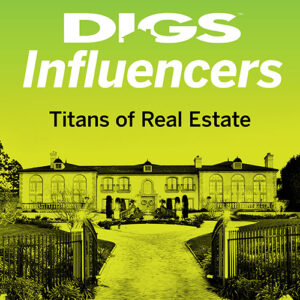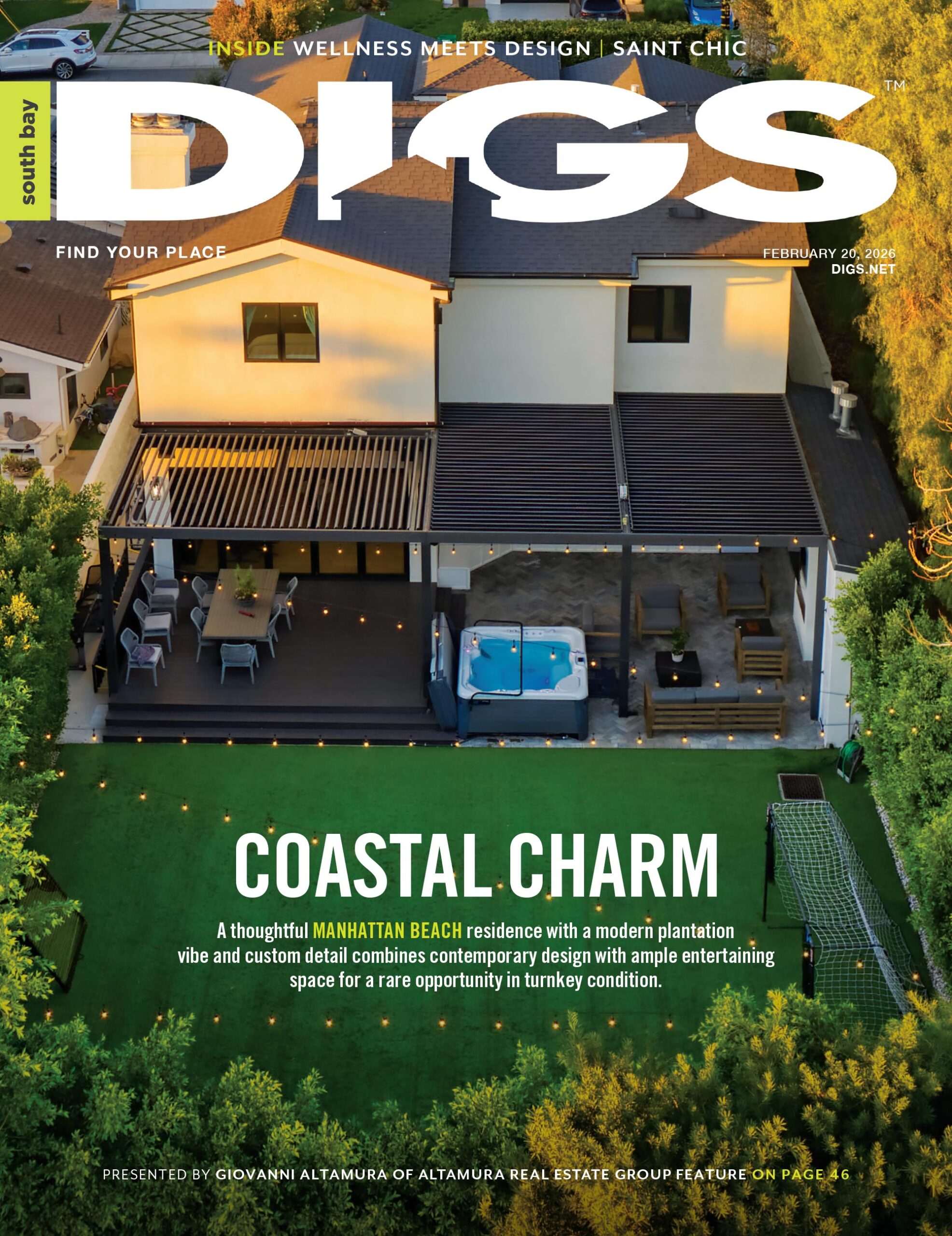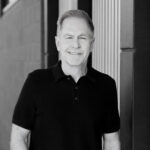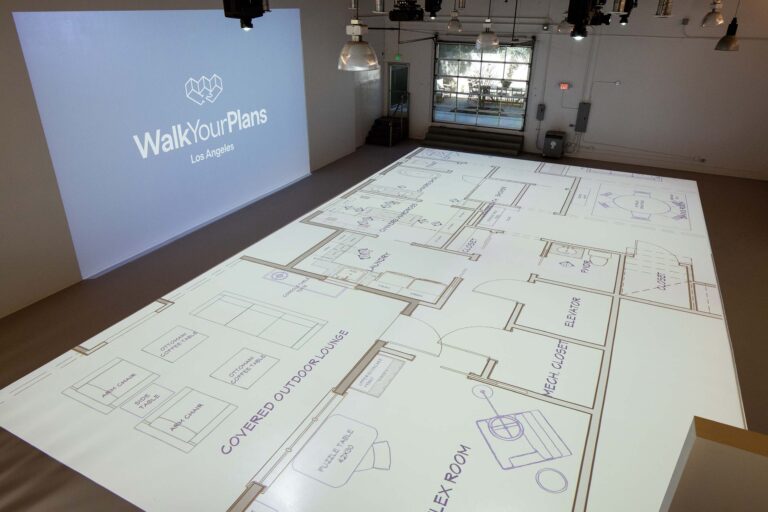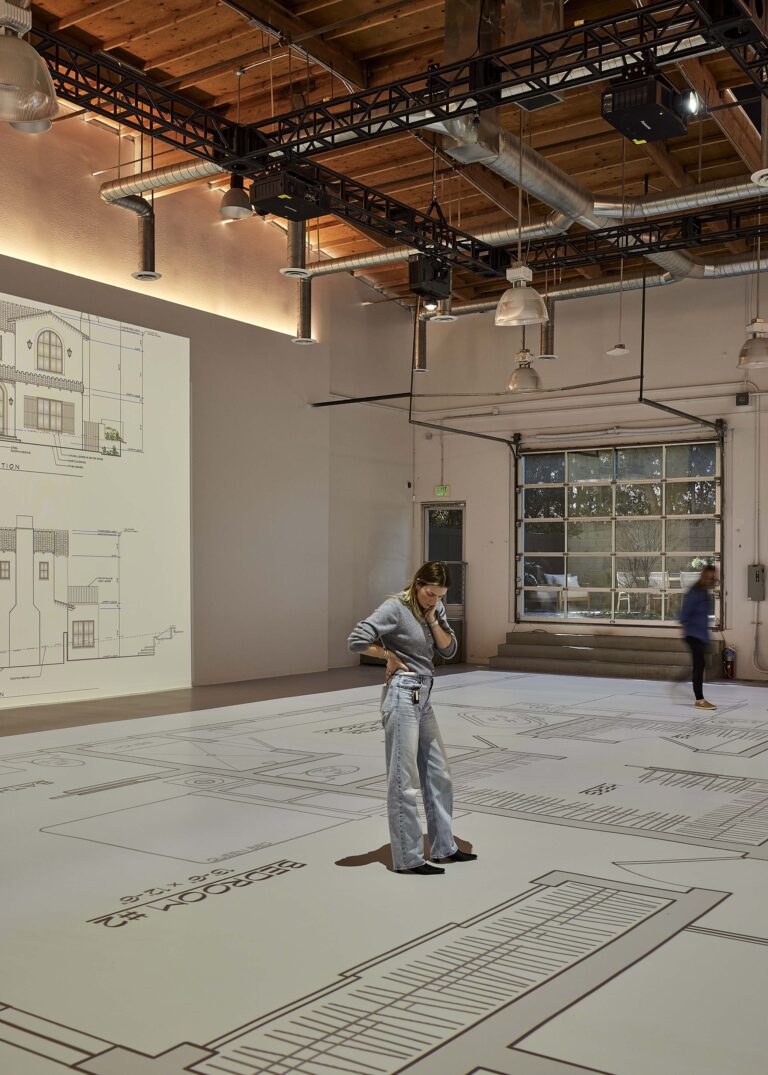Table of Contents
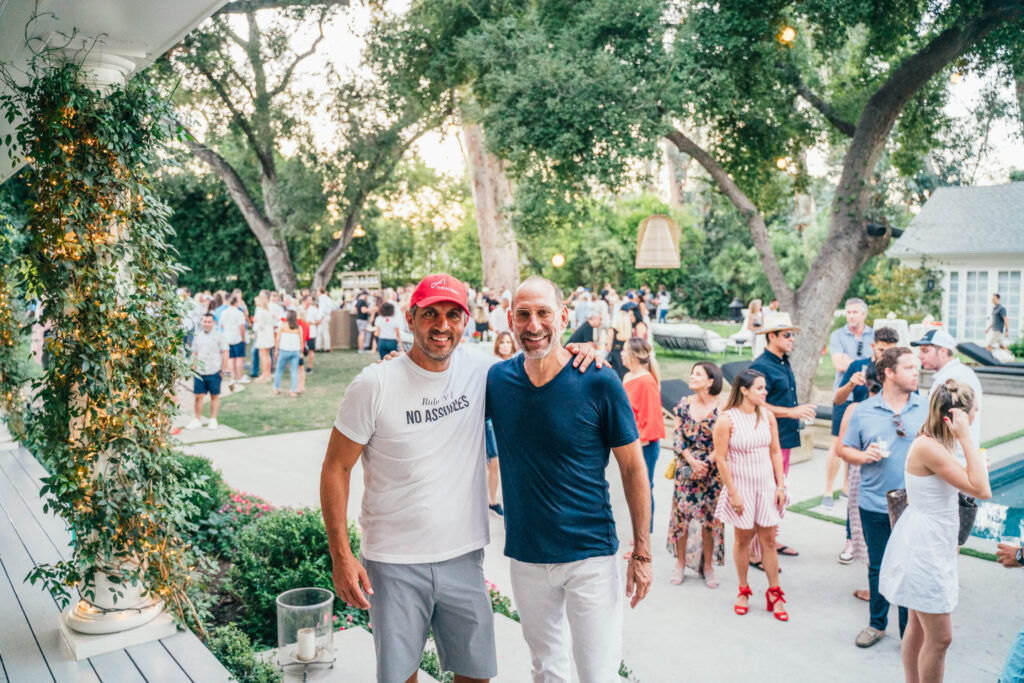
In This Episode
Top Quotes
“I moved to Los Angeles at six years old, seven years old. I was actually born with a blood disease called neutropenia, which was an important part of my life growing up. Spent the first six years of my life at children’s hospital. My memory of before I was six years old, is really non-existent. I kind of blacked it out.”
Tweet
“I think that competitiveness is what’s gotten me through through life, and that is what is my primary reason why I continue to. To try to strive and be successful and move forward. It is the competitive nature of the kind of keeps me going every single day.”
Tweet
“Our opinion was that the real estate brokerage firm was kind of getting broken. The brokerages were no longer giving services to their agents”
Tweet
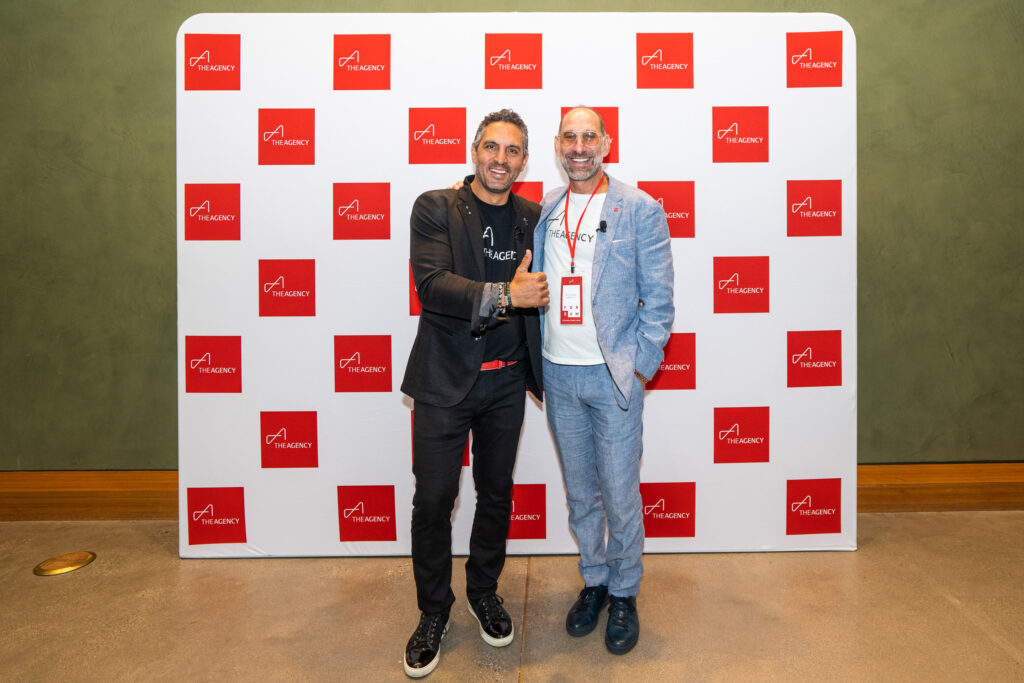
Episode Resources
Follow Mauricio Umansky and The Agency
Follow along with Mauricio Umansky and The Agency: www.theagencyre.com
Full Episode Transcript
Mauricio Umansky: [00:00:00] I moved to Los Angeles at six years old, seven years old. I was actually born with a blood disease called neutropenia, which was an important part of my life growing up. Spent the first six years of my life at children’s hospital. My memory of before I was six years old, is really non-existent. I kind of blacked it out.
[00:00:22] Moved to Los Angeles at the age of almost seven. I got cured. I was lucky to be cured. It was not a curable disease. It was at that point, it was just something that you got lucky and I feel like I’ve had a little bit of a leprechaun on my shoulder, you know? Ever since then. [00:00:46] Warren Dow: [00:00:46] welcome to digs influencer podcast, the Titans of real estate, the show that provides direct access to the real estate industry’s top movers and shakers as they share invaluable insight on how to best navigate and succeed in any market. I’m your host, Warren Dow, founder and CEO of media and publisher of digs magazine. [00:01:09] In this episode, Mauricio Umansky [00:01:19] Warren Dow: [00:01:19] thank you to our show sponsor bow concept. Today’s guest defines what it is to be a true Titan of real estate. He’s the founder and CEO of The Agency. And has represented some of the world’s most exclusive and distinguished properties, including the Playboy mansion, the Walt Disney estate, and many others, and is truly a household name among the movers and shakers in real estate. [00:01:42] Please welcome to the show Mauricio Umansky [00:01:44] Mauricio Umansky: [00:01:44] Thank you, Warren. I’m good to be part of the show and looking forward to a really nice conversation with you. [00:01:50] Warren Dow: [00:01:50] All right, let’s do this. So before we begin, let me quickly give our audience some context around some of the amazing things that you’ve accomplished in this industry. [00:02:00] Mauricio Umansky: [00:02:00] Please don’t. [00:02:02] Warren Dow: [00:02:02] We have to. The world needs to know currently ranked number three in the entire country by transaction volume with $548 million transacted. That’s according to 2018 real trends. The thousand you’ve been ranked among the top 10 agents in the country for seven straight years per real trends. [00:02:22] Again, you sold the most homes in the country, priced above $20 million. You sold the first home in LA County over $100 million. That Playboy mansion, you launched The Agency in 2011 which ranks them on the inc 5,000 list of the fastest-growing private companies in the country. The Agency ranked fifth largest residential brokerage in LA County by sales volume with 6 billion in sales in 2018 for four consecutive years. [00:02:50] Where you see has been named one of the most influential people in LA by the LA. Business journal. Mauricio was also a proud member of the young president’s organization, YPO, and is active in philanthropic work, including serving on the board of Give Back Homes, the children’s hospital, Los Angeles, and the national breast cancer association. [00:03:09] Mauricio, congratulations on all of your hard-earned success. It’s an honor to be with you today. [00:03:15] Mauricio Umansky: [00:03:15] Wow. Well, those are all amazing accolades. I can’t believe you’re actually talking about me, but the thank you very much, and it is an honor to be here with you and look forward to hopefully giving some great insight and to our audience listening here today, and let’s have some fun. [00:03:29] Warren Dow: [00:03:29] Absolutely. So let’s start from the beginning. Let’s, let’s get back into who is Mauricio tells your story. [00:03:36] Mauricio Umansky: [00:03:36] Oh, wow. Who is more easier? Well, I. I think one of the most important things is that I’m a proud father and a proud husband. I think that’s the foremost most important thing. A father of four daughters and a, they ranged from 11 to 30. [00:03:50] And, uh, just an absolutely incredible thing. Really everything I do is, is all about. You know them and balancing life so that I can spend time with them. Certainly a really proud husband. My wife, Kyle’s an extraordinary woman. And, uh, just super proud, you know, to be able to, uh, say that I’ve been known her for 25, 26 years and nearly married for 24 years, uh, particularly in Los Angeles and Hollywood. [00:04:13] I think that’s an extraordinary feat and I can tell you that we’re still really happy and it’s not anywhere near the end, but, uh, hopefully, uh, she’ll watch, she’ll watch me die. Instead of the other way around one day from a business perspective, I mean, I was born in Mexico city. I moved to Los Angeles at six years old, seven years old. [00:04:31] I was actually born with a blood disease called neutropenia, which was an important part of my life growing up. I spent all my life at children’s hospital, which is why I’m so into children’s hospital, or the first six years of my life at children’s hospital. My memory of before I was six years old really is nonexistent. [00:04:46] It’s kind of blacked it out. Moved to Los Angeles at the age of almost seven. And, uh, grew up in LA. I got cured. I was lucky to be cured. It was not a curable disease. It was at that point, it was just something that you got lucky. And I feel like I’ve had a little bit of a leprechaun on my shoulder, you know. [00:05:05] Ever since then, you know, kind of taking care of certain decisions. And, you know, I think it’s also been kind of one of the reasons why I’ve, uh, uh, so confident in terms of making decisions. I live by a, a couple of important rules, a certainty versus doubt. And I never, uh, any decision I make, I always have certainty making those decisions. [00:05:22] I never doubt myself. I may or may not be right and I may or may not make a mistake, but at least having certainty in those decisions is a. Uh, one of the unique features that I think has always gotten me through the world, went to high school here, an avid golfer, avid skier, really loves sports all of my life. [00:05:38] Really. I think that competitiveness is what’s gotten me through through life, and that is what is my primary reason why I continue to. To try to strive and be successful and move forward. It is the competitive nature of the kind of keeps me going every single day. I, uh, started working for my father back in the 22 years old and then finally got into real estate when I was 26 years old in 1996, which was one of my first daughter was born, my, well, my first. [00:06:05] Daughter, my oldest daughter is a stepdaughter, but I call her mind because I’ve raised her since she was five. And, uh, so my first daughter Alexia was born in 1996. And that’s approximately when I got into real estate and then kept it going. And one of the, you know. Promises that I made myself when I got into real estate is that I would never have a worse here than the year before in terms of sales volume. [00:06:27] And again, that was my competitive nature of the company going. And for about 24 years I was able to keep that going until I started The Agency. And then when I started The Agency, I had one bad year cause that’s how I, you know, I had to start The Agency and sell. So I wouldn’t call it a bad year. I still made the top 10. [00:06:43] But, uh, sort of the, it was the first year I didn’t outperform the previous year. And then after that, I think I’ve outperformed the previous year ever since. So super proud of that and super proud of The Agency and really what The Agency is, you know, my most proud of is the family that we’ve created there as the people. [00:06:59] The Agency could not be The Agency without the extraordinary people that work at The Agency, because that’s really what it all about. So all I’ve done is really just compile a whole bunch of really extraordinary people and let them do their thing. And that’s what The Agency is and set out to define and redefine real estate. [00:07:14] And here we are. [00:07:16] Warren Dow: [00:07:16] So that’s a, that’s awesome. Um, so let’s go back. Let’s go back to [00:07:20] Mauricio Umansky: [00:07:20] your life. It was a loaded question, Warren. [00:07:22] Warren Dow: [00:07:22] I know. That was a good, that was a good, good answer. You hit, you hit a lot of questions within that one. Question. So are we done? [00:07:29] Mauricio Umansky: [00:07:29] We’re done. That’s a wrap. [00:07:32] Warren Dow: [00:07:32] Um, now I want to go back when you first started selling real estate, let’s get, let’s talk more about before The Agency. [00:07:38] Okay. Let’s go back to that first year. Tell us about like, why did you get started. Tell us about that first year. [00:07:44] Mauricio Umansky: [00:07:44] Well, I used to work with my father and selling textiles, and then he and I began a clothing company that, uh, was called nine Oh two 65. An amazing company that we, uh, purchased and grew it. My father gave me all the support. [00:07:57] Needed at that time. And I learned a lot of amazing, you know, selling lessons from my father. You know, when you sell piece goods, which is basically textiles, for those of you that don’t know, what you’re doing is you’re selling tremendous volume, and so you’re selling, you know, you’re selling multiple millions of yards in a yearly basis. [00:08:12] And I used to leave and come back with a 300,000-yard order, and I would. Sell it for 97 cents a yard. And I was all happy and gung ho and dancing in my car and you know, playing, you know, highway to heaven and just going hard. And I get back to the office and I told my father, Hey dad, I got an order and my dad would do the math. [00:08:31] And he goes, I need you to go get another set in the half. Per yard. I’m like a said two and a half. What are you talking about? He goes, go multiply, sit in the half by 5 million yards, and you’d tell me how much money that is at the end of the year. And so he really taught me how to understand the value of the scent, not the dollar. [00:08:47] And I think that’s kind of important, Paul, in my life, because you know. That means is I, I also really understand the value of the seconds, not the minute or not the hour or not the day, but the value of the second. And, uh, understanding the value of the center is as important from a financial perspective as, as understanding the value of a second from a time perspective. [00:09:04] And, um. We, we did that. We grew the company was an amazing company. We grew it to $30 million of sales, but unfortunately, I really couldn’t produce the goods. So to make a long story short, we had to basically close the company, sell the company. I had to go work for another big company. I was really not made out to working for other people. [00:09:20] I was really meant to be an entrepreneur and worked for myself. I did not like that experience at all. And so, uh, my brother in law, uh, Rick Hilton owned a company called Hilton and Hyland. And, uh, he gave me an opportunity to start working for him and selling real estate. My wife convinced me. She and I both went to school and got our real estate licenses together. [00:09:38] She never practiced, but she certainly helped me get through that and was a tremendous amount of support and all that stuff. Uh, I had been fired from my last job. I was not, uh, like I said, I was not going to working at that point, you know, we had kind of lost all our money kind of down and out. My wife really got me through that moment and she really was extraordinarily supportive. [00:09:56] We had a kid already when essence two kids, we were living in a two-bedroom condo. And uh, she convinced me to go sell real estate and she was just always super supportive and super strong and just an amazing woman. And my first sale was actually to her ex-husband, and that was an extraordinary sale and he was super supportive. [00:10:13] He’s. Been a great friend since then, and we have an amazing relationship. We can always talk about that later if you want. But, uh, that was my first sale. And, uh, the first year I made $180,000. And like I said, I promised myself that I would never have a worse outperforming year than the first year. And, uh. [00:10:34] I basically did that and I kept that promise through 24 years, including through the recessions that, uh, that we went through there. And the recessions is when I was able to grow the business and actually outperform everybody else and really grew from being a top agent. You know, maybe 150 in the nation, or 350 in the nation. [00:10:52] I have no idea what number was to being number seven in the nation. And that’s when I made that big jump during that recession period. And I think that was kind of a critical moment in my life in terms of, uh, you know. Where we are now and what we’re doing today. [00:11:05] Warren Dow: [00:11:05] So, great. And how long did you work for Hilton & Hyland? [00:11:07] That was your first, [00:11:09] Mauricio Umansky: [00:11:09] so I worked for Hilton & Hyland. Then for I guess approximately 15 years plus or minus. I’d never went anywhere else. That was the only thing I ever knew, I guess from 96 or 97 through 2011 so you have 14 years plus or minus. [00:11:24] Warren Dow: [00:11:24] So what do you, what’s your biggest takeaway from that experience? [00:11:26] What did you learn and glean from those years that gave you. Some insight before you started The Agency, like what did, what did you take away? That [00:11:35] Mauricio Umansky: [00:11:35] I was a salesperson at that time, I was never really getting into, and I was just running my own business. It was, you know, one of the things that I love about being a sales agent is that you really do control your own business. [00:11:44] You know, you’re in control of your, your marketing, your financials, your. You know, basically everything you do is, so it’s kind of a business within a business, really. The brokerage house, you know, what they do at that point is they really just kind of hold that broker’s license and give you, in theory, some support. [00:11:58] Hilton Highland is a great company, a luxury brand, you know, just an amazing company. And I learned a lot, you know, in terms of being a luxury agent. But again, you know, the reality is that what you do is you learn from your own experiences and being an agent, uh, you, you know, one of the beautiful things is that you really do control your own business, right? [00:12:15] So. I think really, you know, where I really learned a lot was not necessarily from those days, but really from, you know, the clothing days and the, uh, the time that my father and I grew that business and made all the mistakes that we made in, in production and different, you know, ways of, and methodologies of operating and assemblages and assembly lines and et cetera, et cetera. [00:12:34] And I think I take a lot more knowledge from those days. And I do as being a, what I learned in those 15 years was, you know, the market. You know, the real estate. I learned knowledge. And I always tell all the agents out there that what they need to know is they need to know. They need to have a tremendous knowledge of the market, and they need to be the most knowledgeable person in the room at any given time, uh, regarding, you know, what the market’s doing and they’re really the story and et cetera, et cetera. [00:13:00] Warren Dow: [00:13:00] So let’s go back to failure. Mistake. I’m always curious about, you know, it could be in real estate or what you’re doing before, what was the biggest mistake you made? Or you can remember that word. Lesson learned kind of moment for you, like, [00:13:13] Mauricio Umansky: [00:13:13] yeah. I don’t know if it was one mistake that was that was done, but you know, certainly just. [00:13:17] Yeah. From our perspective was managing the production and you know, you’re producing, you know, $30 million worth of goods. You need to be able to produce quality goods in order to get them delivered and managing the business. And you know, the apparel business is an extraordinarily difficult business just because there’s so many aspects of it. [00:13:33] From design, creative assembly, manufacturing, accounting, financing. I mean, it’s a really complicated business. [00:13:42] Warren Dow: [00:13:42] What’s interesting about that? So we have a parallel, I grew up in the commercial printing business. Yeah. That’s where I spent 15 years. Same thing, save hardcore manufacturing, tons of processes that all rely on each other. [00:13:54] You know, from getting the file to making the plates to bring it up to the press so that, you know, post-press and delivery distribution and. It’s intense. [00:14:03] Mauricio Umansky: [00:14:03] Yep. My father was an amazing operator. He still is. I mean, at one point we had, I think over 6,000 employees working for him. We had a nursery, we had a medical, we like, it was an extraordinary, a manufacturing plant. [00:14:18] So it was, it was fun. I learned a lot from those days, particularly, you know, now having almost a thousand people that worked for The Agency and you know, over a hundred and. Employees and number five, you know, over 600 agents. So [00:14:32] Warren Dow: [00:14:32] what’s the creation story behind The Agency [00:14:35] Mauricio Umansky: [00:14:35] creation story behind The Agency was really a, an idea to redefine real estate. [00:14:39] Our opinion was that the real estate brokerage firm was kind of getting broken in. The brokerages were no longer giving services to their agents, and they were really just becoming, houses have a, basically a real estate play, you know, red 10,000 square feet, put a hundred desks in it. Pay $10,000 a month, rent the desks for $1,500 a month and make $15,000 a month. [00:15:03] And my spread was $5,000 a month. And I don’t really need to give any services to the agents. I just need to make sure I make $5,000 a month or make a little bit off. I’d be and, uh, let the agents run their own business. As I said, agents, we really became, started to run their own business. And that was kind of a broken model because the reality is that. [00:15:21] You know as together, you can do a lot more things than alone. And the problem with real estate agents, the majority of the real estate agents, I would say 99% which is why you see some extraordinary agents make extraordinary, extraordinary things because 99% of the real estate agents are really not good at their job. [00:15:39] Okay. And they’re not good. They’re not, copywriters are not marketers. They don’t understand business. They just do it kind of as a part-time basis. And so what we did as a brokerage firm is that we wanted to give, create a brokerage firm that all works together. And the brokers from The Agency gave tremendous knowledge, services, opportunities, skills, technology. [00:16:07] To the agents so that they can then use all of those things in order to then give, you know, great and tremendous service to their consumer, to the end consumer, right? So everybody wins. The agent wins. The consumer wins. Now by doing that, the agent needs to understand that they’re not going to be able to be on a 90 10 split or an 85 15 in order to stay open. [00:16:26] You know, agents love an amazing marketing team. They love an amazing PR team. They love having knowledge of, you know, where the market’s going, where in order to have all those people you need. Employ people and you need to have jobs. So you know, can understand that in order for them to make more money because they have more resources in their hands that they all need to share in that and that we still operate at a small percentage and you’re open about that. [00:16:50] That’s all about the art of collaboration. Then we all put together in order to create a better company so that we can get. Better services, and at the end of the day, if I can just sell more, it doesn’t really matter what my split is, I’m going to take home a lot more money as an agent. That versus having a high split and not getting a lot of volume, right? [00:17:07] If I’m making $1 million a year and my splits 80 20 I’m taking home 800,000 and the reason I can make $1 million is because consumers want to work with me because of all of the services that I give to them, right? That was the methodology behind The Agency. So if I work at another company that’s not giving me any services and I lose the listings and I’m only making. [00:17:27] $400,000 at a 90 10 split. Right? So now I’m making $360,000 would you rather make $360,000 or would you rather make $800,000 yeah, that’s really the question. And so all of the agents got together, understood what we were doing, and we understood that in order to have those resources that we actually had to pay for those resources. [00:17:46] It’s not that The Agency is making a bunch more money. We’re actually still operating on the same small, you know, five. Percent, eh, margins a four to 5% margins. And, um, you know, if people are open about everything that they do and they share with their agents and they share with their employees, then everybody can work together. [00:18:02] And all boats, you know, all tides raise all boats, right? So it’s all about, you know, all for one and one for all theory. And that really was the theory behind, you know, The Agency well [00:18:12] Warren Dow: [00:18:12] is awesome. And this is where I think you were truly one of the first companies in this space to disrupt, be disruptive. [00:18:20] Because you created that culture and that belief in that sort of mind share within the agents. You did things differently as you stated day one. [00:18:27] Mauricio Umansky: [00:18:27] We did a lot of things differently. I mean, one of the things that we did differently is, uh, the usage of technology. We decided day one that we were gonna start the company where they have one CRM system, one system that everybody was in using, and we have a hundred percent participation in our CRM system. [00:18:42] We bought a whole bunch of them. Unfortunately, none of them worked. And we actually ended up having to build our own CRM system. So we actually have, I think we’re the only company in. The world that has its own proprietary CRM system. And I would guess that we’re the only company in the world that has more than 50 agents that has a hundred percent participation in their CRM system. [00:19:02] And a, you know, one of the reasons we built the system was because my CTO came up to us one day and I said to him, I was so frustrated. I said, well, you know, we can’t get what we want out of the systems out there. I said, what can we do? And he said, well. You know we can build our own system. And I said, you have the knowledge to do that. [00:19:18] He goes, yeah, I go, how much is that going to cost me? He goes, I don’t know, 150 to $250,000 and I scratched my head. I didn’t have that kind of money. I was so nervous. And I said, you know what? If we are going, you know, in order to be great, we have to dare to be bad. And that’s what we’ve decided to do. And so we’re going to do is we’re going to go for it. [00:19:34] Little did I know that $5 million later I was going to still be building a damn CRM [00:19:39] Warren Dow: [00:19:39] system. Say good luck with the one. I know that that [00:19:42] Mauricio Umansky: [00:19:42] hurt. I know that back then, I’m not sure I would’ve made that decision. Yeah. [00:19:48] Warren Dow: [00:19:48] Yep. That’s great. That wasn’t it turned out okay. Obviously it [00:19:51] Mauricio Umansky: [00:19:51] turned out just fine. Still steel turning. [00:19:54] We’ll see. [00:19:55] Warren Dow: [00:19:55] So, so did you guys have, when you started, like in the beginning, I’m sure it was a struggle with any new business, right? Even though you had 15 years in with Hilton and Hyland. Was there a moment in The Agency in the beginning where you’re like, this is it. We did it. We’re over the hump or over that first Hill like, this is legit. [00:20:13] We’re on our way. [00:20:14] Mauricio Umansky: [00:20:14] Was there? No, I don’t think we’re over the hump yet. I don’t think we’ve crossed that, and I don’t think we’re legit yet. I mean, we still have a long way to go. We still have a whole bunch of things to do, and we’re not even close to being over the hump. So every day it’s still a startup or still. [00:20:28] You know, busting our butts and, and doing everything we can. So absolutely not. [00:20:32] Warren Dow: [00:20:32] I share that mindset wholeheartedly. You know, digs, our magazine comes out every two weeks, right? I’ve always had this, what I say, healthy, unhealthy, sort of saying that, Hey, we’re two weeks away from going out of business. Every two weeks. [00:20:45] That’s right. Regardless of what’s happened in the past, it’s game on every day. [00:20:49] Mauricio Umansky: [00:20:49] You’re only as good as your last deal. [00:20:50] Warren Dow: [00:20:50] Yeah. So it keeps us fired up and doing the right thing. Right. Yep. So what was your biggest deal, personally? What’s the biggest as the Playboy mansion? [00:21:00] Mauricio Umansky: [00:21:00] I think that, uh. Yeah. I think that was probably my largest deal was the Playboy Mansion. [00:21:05] I certainly, from a dollar perspective, certainly when I can talk about, uh, from a commission perspective, I’ve had some other deals, but, uh, you know, there’s some extraordinary leaders. Extraordinary deals. I mean, it’s not only the ability to, you know, it’s, it’s who I also get to work with that makes it an ex, you know, an amazing deal. [00:21:23] It’s not only about the size of the money and the size of the commission, but obviously representing the Playboy Mansion. Probably one of the most iconic homes in the planet, uh, was an extraordinary experience. Representing Michael Jackson was an extraordinary experience, which I will never forget. I mean, I remember showing him some homes and he would walk in and, and all of a sudden he had great acoustics and literally started. [00:21:43] Singing acapella, which is just amazing. And it was just so extraordinary. I mean, I did it. I was one of those people, I hope never bought a home and I hope never leased the home cause I just wanted to be around that man. Uh, the experience of, you know, Prince was an extraordinary experience. Uh, he was one of those people that was just so into energy and so into a spirituality. [00:22:02] And he literally, you know, would walk into a house. I would call it my client. And I would say, I’m bringing prints and my client would get all excited and they would get the house ready. And I said, listen, please don’t get excited. Please don’t get dressed up. Please don’t be there. Please treat her as anything else because literally he can walk up to the driveway, not feel the energy, which has nothing to do with the house and not come in the house. [00:22:22] And you will do a whole bunch of things that my clients would get so frustrated. Cause he would literally do that all the time. And the woman were always inside the house ready and primped up and they just wanted to meet Prince. And I cannot tell you how many times he would not walk in the house. And I would say, please, please, please, this is an extraordinary person. [00:22:39] He would just not do it. He was, I don’t feel this energy. We got to go. And of course we were two hours late arriving at the house. You know, the client was sitting there waiting for us. I mean, the amount of upset clients I had with you know about that was extraordinary. [00:22:50] Warren Dow: [00:22:50] So when you start working with this, this level of clientele, you know, celebrities, athletes, people have known already. [00:22:57] Tell us about the approach, like when they’re first meeting you. Like what kind of questions are they asking you? Like to, how are they vetting where eco? [00:23:04] Mauricio Umansky: [00:23:04] Well, again, I think you need to be extremely knowledgeable. You need to be charismatic. You need to be able to read the room, right? Does somebody want to talk to you? [00:23:11] Do they not want to talk to you? Do they want a lot of information? Do they want a room, the property by themselves? You know what? What is it? Do they want? One of the tricks that I’ve always done as a real estate agent, I do everything possible to get in front of the client. And what I mean by that is I try to take the client in my house, in my car. [00:23:25] Okay. Cause that’s when I have the opportunity to talk about other stuff and get to know the client versus looking at the house cause in the house. I believe that as an agent you should not give too much information as they’re walking to house. You should be prepared to answer any question, but you should not be walking to the house. [00:23:40] The client and said, pointing out, you know, that’s a fireplace with Calacatta marble. Well, no shit. Okay. I mean, we all know that’s a fireplace that we all know. Those are windows, and we all know that there’s four walls in this room. I mean, the, so the problem with some agents that they get and they get excited about seeing a celebrity, they get in their face, they get over-aggressive, et cetera, et cetera. [00:23:59] But you do have to be able to read the room. I have a great story. The Amir of guitar arrived. I had no idea who was arriving. They kept it super secret. I was showing a house, literally as the arrival was an extraordinary parade of police officers. It was 16 motorcycles. It was 12 cars, six SUV secret service. [00:24:20] I mean, it was amazing. And finally, like the man gets out of the car and I have no idea who. The man is right. And so I’m sitting there, I’m sorry, the house, we’re in the and I’m trying to like, you know, the secret service are huge guys. They’re all your other tower. I’m six-one and they’re towering over me and I can’t even see, you know, I’m jumping up and down. [00:24:40] I can’t even see the mirror to talk to him. And so I stop in the middle of my, you know, the first three, four minutes. And I say, you know, sir, you know, at that point I kind of realized that, you know, it was a mirror. I go, listen. Do you like what you’ve seen so far? Is this a house that you’d like to see? [00:24:55] And he goes, yeah. And I go, well, listen, I really cannot show you the house with all of these secret service in the way I just can’t do my job. I go, do you think that we can ask them. To wait outside. And he loved that. And so we did. We, uh, that aggressiveness, and we asked them to wait, you know, by the door. [00:25:12] They didn’t go outside, but they certainly waited by the door. I had one guy following me, but, uh, again, it was that comfort and that confidence that allowed me to make a connection with this client. Right? And so you need to have that confidence and you need to have, you need to be knowledgeable enough and have the confidence in yourself that you belong in that room. [00:25:34] And you need to be able to read that room. [00:25:36] Warren Dow: [00:25:36] And it sounds like, yeah, read the room was, it’s awesome. So is there any, uh, of, let’s go back to this, cause this is really fascinating for, I’m sure our audience, who’d never in their wildest imaginations would ever be able to meet somebody or be in the same room or house with these, these types of people. [00:25:52] So. Is there anyone in particular sort of moment that you had that’s maybe non-real estate related where you got to chat about your childhood or you connected with one of these guys or, or [00:26:03] Mauricio Umansky: [00:26:03] like one moment I connected with so many people. I just named, you know, a whole bunch of, uh. Amazing people that have had extraordinary experiences with, you know, Michael Jackson singing for me, the, uh, lady Gaga, you know, really fun, you know, experiences. [00:26:17] I mean, it’s just been an extraordinary life and extraordinary Memorial. I think we need another two hours for that podcast. That’s separate. I think I’m going to have to have you on my podcast when I started. Yes, I have that one. [00:26:26] Warren Dow: [00:26:26] I like it. Sign me up. So let’s have some fun. You’re married to actress Kao Richards who stars on real Housewives of Beverly Hills. [00:26:36] How’d you guys meet? [00:26:38] Mauricio Umansky: [00:26:38] Kyle and I met at a bar and nightclub called … It’s now Bootsy bellows. It’s on the corner of sunset and Doheny. It’s still around. And uh, yeah, that’s how we met. It can happen. So what [00:26:52] Warren Dow: [00:26:52] was your line? Come on. Well, you got to show your line. [00:26:54] Mauricio Umansky: [00:26:54] I didn’t even have a line. She actually just came up to me, you know, I’m just, [00:26:59] Warren Dow: [00:26:59] let’s verify that. [00:27:00] Let’s [00:27:00] Mauricio Umansky: [00:27:00] get that. Uh, I did not have a light. She did come up to me. She asked me some question, which I’m not going to repeat today, but she did ask me a question and, um, I was not able to answer it, but I was like, Oh my God, who is this beautiful woman? And then I ran around and I, you know. A mission accomplished. [00:27:18] And then I saw her again at the same club, you know, like two nights later. And literally, I asked her out for lunch and we went to have lunch and she was engaged at the time. So, you know, unfortunately, I broke off an engagement. Sorry. So if you’re listening, you know who you are, you do have an amazing voice. [00:27:37] Um, and uh, so we broke off. She broke off that engagement, and we literally, once we went to lunch, we were almost together every single day. And then we, uh, we were never apart pretty much since then. [00:27:49] Warren Dow: [00:27:49] That’s awesome. Looking for a personal stylist for your home. Check out Bo concept. One of their design consultants can help you make the most out of your space. [00:27:58] No request is too big or small for living, dining, sleeping home office and outdoor spaces, and check out their Southern California showrooms in Orange County, in Costa Mesa, and also in Los Angeles on LaBrea. For more information, visit Beau concept of Bo concept.com email info@beauconcept.la. So with your wife, show The Agency’s success and all the celebrity clientele you deal with, like do you think being in a spotlight helps you or is it become more of a distraction. [00:28:29] He always got be on. You gotta be showing up these places and just in the Mo you have to be. [00:28:35] Mauricio Umansky: [00:28:35] It’s a little bit of both. I, uh, being in the spotlight has certainly helped the, uh, brand awareness for The Agency being on, you know, The Real Housewives of Beverly Hills being on Million Dollar Listings with James and David Parnes were amazing guys, and they represent a soul extraordinarily well, uh, certainly helps. [00:28:52] And the brand awareness is, you know, today is. Worldwide, it’s global because of those things. I would never be able to do that on my own without, you know, that. And, um, so I think that it certainly comes with its sacrifices and it’s, you know, negative situations, which is sometimes you can’t just be real. [00:29:11] You just can’t relax. You want to be hanging out, you know? Whatever at a beach and not be bothered, and you know that your tummy hang out and have a couple of beers and [00:29:23] Warren Dow: [00:29:23] beyond. Yeah, no, [00:29:24] Mauricio Umansky: [00:29:24] you know, you gotta be on all the time and you never know. You know, who’s watching and what people are doing or what people are talking about. [00:29:31] And you’re under a microscope. I mean, you’re definitely watched and everything that you do in life is. Analyzed and critiqued and, uh, analyzed again and critiqued again. And sometimes you get some amazing love from people and that also feels good, but sometimes you get some tremendous criticism and that doesn’t feel so good. [00:29:50] You know, a lot of people don’t realize that all of us, you know, that are on television, that we do put our lives out there and they don’t realize that that social media, that there is somebody behind that account and they’re just so aggressive, you know? And so. Bullying on social media that, uh, you know, they just feel like they’re talking to their phones and a computer and they don’t realize that there’s actually a real person reading that stuff. [00:30:08] And it’s kinda sad to do that. So, you know, it definitely comes with its problems and its sacrifices, but all in all, I think it’s been a good run so far. [00:30:17] Warren Dow: [00:30:17] Cool. So what do you think of the show really Nautilus thing? [00:30:20] Mauricio Umansky: [00:30:20] I think Million Dollar Listing is awesome. I think that James and David are extraordinary. [00:30:24] I think they make us look amazing. I think there’s so much fun to watch and, uh. It’s fun. I mean, it’s, you know, the audience loves it. I get it all the time. I mean, I’ve certainly made my, plenty of my periods is on that show, I think. I think I’m probably one of the guys that’s been on more reality television shows than anybody else, and I’ve yet to be paid for one. [00:30:42] Bravo. Come on, send me some money. Come on. [00:30:45] Warren Dow: [00:30:45] Where’s the royalty checks? So, here’s a fun fact. I bet you didn’t know. My wife and I were one on one of the first episodes of house hunters in 1999. So we’re eco. I was actually one of the first reality real estate. Uh, Virginia’s. I was one of the guys. [00:31:03] Mauricio Umansky: [00:31:03] Well, that’s awesome. [00:31:04] What were you doing on that? [00:31:05] Warren Dow: [00:31:05] I w we were showed buying our first house, like that experience. [00:31:08] Mauricio Umansky: [00:31:08] Oh, cool. Where was the house? [00:31:09] Warren Dow: [00:31:09] A Hollywood Riviera still live in there today. Wow. Yeah. [00:31:12] Mauricio Umansky: [00:31:12] Was that just part of the, uh, the hunting or did you remodel the house. [00:31:16] Warren Dow: [00:31:16] No, it was a quirky story. So my wife’s sister was in real estate and they called her office back when we were first looking for our first house, and they said, we’re looking for a young couple where this production company buying their first house and dah, dah, dah, dah. [00:31:30] She’s like, well, my, my sister and you know, are there. So they just bought a house. So we ended up doing, I think it was episode number seven. So it was pretty funny. [00:31:38] Mauricio Umansky: [00:31:38] That’s cool. Yeah. [00:31:39] Warren Dow: [00:31:39] So in house hunters is now, [00:31:41] Mauricio Umansky: [00:31:41] you began at all for us. Yes. [00:31:43] Warren Dow: [00:31:43] So I need, I need the world [00:31:45] Mauricio Umansky: [00:31:45] I appreciate that. [00:31:46] Warren Dow: [00:31:46] I need the world to tell us a funny. [00:31:51] Can’t believe it happened. Real estate story. Is there anything that’s like you just, that you a fireside beer talk like, can’t believe this happened with this deal or this. [00:32:02] Mauricio Umansky: [00:32:02] Situation, their stories every single day. I can’t believe anything happens in real estate. They meet every single day. The stories are extraordinary and I hear them all the time. [00:32:10] One of the things that always baffles me is. The fake people, the fake buyers like that. To me, I just don’t understand. I mean, we had a, a fake buyer that pretended that his father was the King of monopoly. You know, the King and monopolize the tobacco industry in China. Right? And so he arrived one day and the man smoked Oh, cigarettes. [00:32:35] Okay. And he was clearly trying to, uh, to, to make sure that his father stayed in business. But, uh, you know, he came and he showed up with a whole bunch of papers and you know, he had his real estate agent. Uh, who he got from Pasadena, which is very typical from Arcadia, actually, which is very typical from, from wealthy Chinese investors. [00:32:55] And the, he called me up and he says, listen, you know, he’s been sent by his father and he wants to buy three houses, one for himself or for his sister and one for his father. We need to buy them all in one community. We ran around like crazy, you know, he had, I said, have you verified this man? He goes, yeah, I have 100% verified. [00:33:09] This man. He’s ready to go. I know him. I know the family. I know the whole thing. This is what the other real estate agent was telling me. So we ran around, we bought, we made, I worked from 8:00 AM till about one 30 in the morning writing offers. We got all the offers accepted in one day. We bought $70 million with real estate. [00:33:27] We bought three homes, nor you know, in the, in the $25 million range. And then he’s, you know, was one 30 in the morning. I was tired. I’m like, I need to go home. He goes, no, now let’s go celebrate. And I go, I’m not going to go celebrate with you. I said, I need to go home. I’m tired. I go, we’ll celebrate. You know, it was a three day escrow. [00:33:43] He was wiring the money. We’ll go, we’ll celebrate in three days. I’ll take you out. But I’m exhausted. So I went home, told my wife what I was doing, you know, she’s like, till now, and you were selling houses. I go, yeah, that’s crazy. I go, I really hope. It materializes. We’ll see what happens. Well, you know, somewhere around five in the morning, I get a phone call, the phones ringing, the phone’s ringing, the phone’s ringing. [00:34:02] It’s the other real estate agent. I go, what’s up man? He goes, ah, we’ve been out all night. We went to the casino, we lost a whole bunch of money. He asked me to borrow $10,000 and now he’s asking if he can borrow money from you. I got, dude. Fuck off. Okay. That I go, fuck off. I go, I’m sleeping. It’s four in the morning. [00:34:21] It’s five in the morning. I hung up the phone on him. You know, I wake up the next day, 10 11 o’clock he’s nowhere to be found. 12 o’clock he’s nowhere to be found. All of a sudden I get a call from the real estate agent. He goes, bro. I don’t know what to do. He goes, I’ve been taken. He goes, the guy took me for $15,000 he doesn’t show up. [00:34:38] He’s absolutely, you know, gone. He was a complete fake. And I’m like, man, I feel so bad for you. And of course, I had a call, you know all the people that you know, we sold the house for, let them know, but nobody hurts as much as that guy losing $15,000 so [00:34:53] Warren Dow: [00:34:53] that’s crazy. [00:34:55] Mauricio Umansky: [00:34:55] So what does it tell you? Crazy people to start. [00:34:57] We’re playing that scam. [00:34:59] Warren Dow: [00:34:59] Well, so yeah, that’s unfortunate. So, but at that level, when you’re dealing with, you know, these huge mega 20 plus Million Dollar Listings, how do you qualify these buyers? They like, you financially qualify and you say [00:35:13] Mauricio Umansky: [00:35:13] hard. We usually do what we were usually really good at financially qualifying people. [00:35:16] The problem is that there’s always that one deal where you weren’t 100% sure that the person could qualify, and sure enough, you know, you. Mission accomplished and deal closed, et cetera, et cetera. I mean, I’m, you know, closing a pretty large transaction right now, and that, uh, you know, above $30 million that, uh, the buyer’s never seen the house. [00:35:35] And so, uh, you know, you scratch your head, you’re like, how can somebody spend $30 million? I’ve never seen the house. Well, it’s happened. And, uh, so again, sometimes you have to scratch your head and you’ve got to take a little bit of risks. And. You know that if you don’t take any risks and you don’t, you know, look at it. [00:35:51] Sometimes you miss out on a deal and it’s that one deal that always makes you wonder if you’ve, if you missed that. We’re pretty good at qualifying. I mean, generally speaking, I would say we’re able to qualify 99% of the people that we work with at that level, but there’s always that 1% that we can’t qualify. [00:36:05] And out of that 1%, there’s a handful that can buy it and do qualify. And there’s a. Bunch of them that don’t [00:36:13] Warren Dow: [00:36:13] make sense. So let’s talk about marketing for a bit. That’s my favorite subject, of course. Um, what’s your approach to marketing a $40 million listing, and how does that differ from. A $15 million listing or is there a difference? [00:36:27] Mauricio Umansky: [00:36:27] There really is no difference whatsoever in terms of the approach to marketing the property. It’s, the property has to be marketed for what it is. And, uh, you know, there’s, is, if it’s a piece of land, it’s an innate, like if you tried to change, if you try to change the architecture of a property and make it what it should not be, then you can’t do it. [00:36:43] So, you know, what you need to understand is you need it. As Michael Angela said, he would look at the rock, right? And he would say the sculpture was already in the rock. Right? And all he did was chisel away pieces in order for the, you know, the sculpture to show up. And if you analyze marketing from that perspective and you analyze what you’re dealing with, then you’re going to make a plan based on what it is that you’re handling, right? [00:37:02] So if you’re handling an equestrian site and you can target market equestrian people, uh, it might. That’d be that it might be $100 million estate, but it may not be as expensive as marketing the Playboy mansion, for example, because the audience for that equestrian site is going to be a lot smaller than the audience. [00:37:19] It might be. You might need to reach the buyer for the Playboy mansion. So you need to understand what it is that you’re marketing, and you just need to be able to, to, uh, your market for that. You know, one of the things that differentiates, in my opinion, a real estate company from another real estate company is the marketing. [00:37:34] Right? And so the, our approach at The Agency in terms of marketing is that we market every property as if it was a 20 or $30 million state, right? So if it’s a $2 million property, it’s the same photography as a $20 million property. The same photographer, it’s the same copywriter, it’s the same care, it’s every, everything’s the same. [00:37:52] And that’s what differentiates the companies, right? So you can’t look at differentiating the estate. You have to look at differentiating the companies. [00:37:58] Warren Dow: [00:37:58] Tell me what The Agency, like the word, the brand. What does it mean? Did you come up with it? Literally mean the, like an agency for real estate [00:38:06] Mauricio Umansky: [00:38:06] literally does mean that, you know? [00:38:07] Um, one of the things that I did not like about working at Hilton and Highlands is that every time I spent money on advertising, I felt like I was advertising. The owners of Hilton & Hyland, Mr. Hilton, and Mr. Hyland. And I was spending all the money. So as an agent, I wanted to create a company where agents, you know, something that was the best company for me, right? [00:38:28] A top set up top producing agent in the country. Right? And so one of the things that I wanted to do is that when somebody spending money, I wanted it to be just so generic and I wanted it to be such an extraordinary thing. And one day I’m sitting in the shower. That’s where I do all my thinking. By the way, is the shower. [00:38:41] I can showers [00:38:43] Warren Dow: [00:38:43] that songs were in the shower. [00:38:45] Mauricio Umansky: [00:38:45] So one day I was in the shower and literally I’m like, God, what can I do that is just generic? What can I do that is just generic? And all of a sudden The Agency, and I’m like, Holy shit. The Agency, like there’s no way it’s around. And it’s got so many really cool connotations. [00:39:00] Obviously the CIA, we’re in Hollywood, so The Agency from Hollywood perspective, and then obviously you know what we do, right? And it’ll make, there’s no way that that’s available. I ran out of shower, I was wet, I went to the computer, I started Googling. I’m like, The Agency. Nothing. The Agency rules, nothing, nothing. [00:39:18] Nothing’s coming up. I’m like, this is not possible. There’s no way that this name’s available and here we are. Boom. [00:39:26] Warren Dow: [00:39:26] It was brilliant and brilliant aim and sometimes it’s just starts with a, with a name. I, I’m a believer that like that gives it its sort of. soul, [00:39:34] Mauricio Umansky: [00:39:34] right? 100% [00:39:35] Warren Dow: [00:39:35] you know what I mean? Like that’s for us digs, you know, that [00:39:37] Mauricio Umansky: [00:39:37] took me a long time. [00:39:38] I love that name, Digs. Thanks. So [00:39:40] Warren Dow: [00:39:40] everyone, that’s the biggest accolades we’ve ever gotten is I love your name, love the name of the town, and it’s like, it all starts there. That’s the seed, right? [00:39:47] Mauricio Umansky: [00:39:47] 100%. [00:39:48] Warren Dow: [00:39:48] So if you could define what makes you successful in three words, three words only, what would they be? [00:39:54] Mauricio Umansky: [00:39:54] Honest, competitive, knowledgeable. Nice [00:40:00] Warren Dow: [00:40:00] marketing. Again, question. I forgot to ask you this. Playboy mansion. [00:40:04] Mauricio Umansky: [00:40:04] Yup. [00:40:04] Warren Dow: [00:40:04] How the hell do you come up with a CMA? And I know you don’t come up with a CMA for, for that, but like, I’m just so curious, like, okay, we’re talking price. Where does that, how does that even begin? [00:40:15] Like I think it’s worth, it’s based on this, I mean, of course you got the traditional neighborhood did this the square foot, you know, but like when you get to that $100 million level, how the hell, I love to be a fly on the wall for that conversation on. Picking that price? How does that work? [00:40:30] Mauricio Umansky: [00:40:30] Yeah, it’s impossible. [00:40:32] The only way you can do that is by experience, and that’s why only a few people can actually, you know, handle that listing. And when you get to those certain levels, you can, it’s all done by experience because you’ve sold, you know, multiple properties at that level. You understand what buyers are looking for, you understand what buyers are willing to pay, and it’s really not a CMA. [00:40:48] It’s more based on just experience. [00:40:50] Warren Dow: [00:40:50] Yeah. Knowledge is everything. Knowledge. That’s a really profound point. Especially. I think the more the market knows this, that’s why the majority of the 80 20 rules, the guys doing the 20% like you are, it’s more like the 10% they’re doing 90% of all those super high-end deals. [00:41:08] Because the market knows that it demands. That’s it’s the way it has to be. Right. [00:41:11] Mauricio Umansky: [00:41:11] 100%. And you know, one of the things that happens is that, uh, I always say if you want to get something done, give it to the busiest person in the room because the person that’s just not busy, just for someone who your reason just ends up doing nothing all day long, they figure they can get to their task later and that later comes and later comes and all of a sudden they never get to their task where the people, you know, the busiest people in the room get everything done just because they have to get everything done. [00:41:35] Warren Dow: [00:41:35] Yup. So let’s, let’s talk about the market real quick. Um, give us some insights and Intel. It’s 2009 we’re typically sort of at or near the end of the typical real estate cycle. Right? [00:41:48] Mauricio Umansky: [00:41:48] We’re going back to 2009 or 2019 [00:41:50] Warren Dow: [00:41:50] did I say I said 19, right? [00:41:52] Mauricio Umansky: [00:41:52] No, you said nine. [00:41:53] Warren Dow: [00:41:53] The hell is wrong with the, uh, the, the interviewee, [00:41:57] Mauricio Umansky: [00:41:57] or at least I’m paying attention, right? [00:41:59] Yeah. Well, [00:42:01] Warren Dow: [00:42:01] that, that was the start of this. That was actually the end of the last cycle. [00:42:05] Mauricio Umansky: [00:42:05] That’s why I was curious. So you’re heading with that [00:42:08] Warren Dow: [00:42:08] one? I was actually ahead of myself, so no. So we’ve been about nine, 10 years, right? So typically. You know, we’re entering or at the end or beginning of another cycle. [00:42:18] What’s your thoughts on that? [00:42:20] Mauricio Umansky: [00:42:20] Well, I think we’ve already been in a bit of a slowdown. I mean, if you look at New York, New York has been at a definite slowdown. I think they’re almost ready to be started coming back up. I think one of the things that’s happened if, uh, in California, particularly Los Angeles, which is quite interesting, despite our high tax rates, property tax rates, is that everybody still wants to live in California. [00:42:38] And it’s really become a really, LA has become, in my opinion, today’s trendiest city in the world. And what I mean by that, I mean, people want. To live here. There’s a tremendous shortage of housing. There is a wealth is, is flocking here. Uh, the amount of billionaires that we’re selling homes to is extraordinary. [00:42:56] Whether they’re buying their primary residence or the 20th home. Uh, it’s extraordinary and it’s become the cool place to be. And I personally think that LA might just get this cycle we’re already seeing and have seen a slow down in terms of pricing that has stopped. The appreciation of pricing as 100% stopped. [00:43:15] I mean, it’s pretty much flat-lined. We’re not seeing any more appreciation, but we are seeing that any seller that wants to sell their property, that flat-line level, you know, plus or minus. One to 2% of 2018 or 2017 2018 pricing. The property is selling, and so the only thing that’s not selling is, is properties that are being overpriced today or properties or sellers that are looking for some sort of appreciation based on, you know, 2018 pricing. [00:43:39] Warren Dow: [00:43:39] What about development? Because there’s been some crazy development in the last two, three, four, five years with. You know, w what’s the one spec home that’s now, was it two 50 20 50 million or is it, is it dropped or was, [00:43:50] Mauricio Umansky: [00:43:50] yeah, that was a nay Bella road. Bruce Murkowski’s prepared that spec home. Beautiful house. [00:43:56] It’s actually extraordinary. I think, again, you know, it’s now dropped. I think it’s now $150 million. I’m not 100% sure. And, um, but, um, yeah, the, I think one of the biggest mistakes that developers made in the reason that you’re seeing some of these homes is that they just got overzealous and a little bit greedy on their pricing. [00:44:14] And, uh, the homes are extraordinary. I mean, you know, one of the things that. This development has done is super exciting because it has created probably some of the best homes we have ever seen in history. I would raise the bar. I mean, you’d have to go back to the Renaissance times, you know, when the French and the British were. [00:44:34] Building extraordinary castles that changed the world. And I think that’s one of the things that’s happening right now. Architects are getting to do extraordinary things. Developers are doing extraordinary things. And so one of the great things that’s coming out of that is that we’re seeing extraordinary properties and explored it. [00:44:50] I mean, we’re really lucky to be living in that time today to see what we’re seeing. The amenities that we’re seeing are amazing, [00:44:57] Warren Dow: [00:44:57] and they’re taking more risks because there’s like, it’s gotten wider. It’s not just, you know, this style, that style. It’s like. Let’s create our own style. It’s a hybrid, you know, glass houses and this and that is [00:45:07] Mauricio Umansky: [00:45:07] too wide and it’s amazing and people are doing extraordinary things, and so we’re lucky to live in that and I’m lucky to be able to sell some of those [00:45:15] Warren Dow: [00:45:15] elements. [00:45:16] Yeah, absolutely. Someone who was building a $500 million state on, is that still going. [00:45:22] Mauricio Umansky: [00:45:22] It’s still under construction. They’ve had a little bit of a hard time finishing it. It’s taken a long, long time to finish it. They’ve been building it for a little bit long. I certainly hope they didn’t miss the market. [00:45:30] The property is extraordinary. It’s humongous. I think it’s a hundred and. 10,000 square feet or something like that. I mean, I can’t imagine [00:45:37] Warren Dow: [00:45:37] a Vegas hotel. It’s like a boutique [00:45:40] Mauricio Umansky: [00:45:40] hotel. [00:45:42] Warren Dow: [00:45:42] Why don’t we just get a permit for gambling and we can make that the next, you know, [00:45:45] Mauricio Umansky: [00:45:45] the next casino. Seriously. Yeah. I don’t love to go there [00:45:48] Warren Dow: [00:45:48] and like the residents on out. [00:45:49] I would like that though. The top of the Hill kind of bad. But it’s, uh, [00:45:55] Mauricio Umansky: [00:45:55] we’ll see what happens. I hope he finishes. I’d love to see it. Are you going to get the list unfinished? I don’t know if I’ll get the listing. I mean, I’m currently not working with him and a developer and I’m currently not working with him. [00:46:06] That doesn’t mean I will or will not in the future. But, um, I know him. He’s a great developer. He’s a good guy. He’s a good friend of mine and I really hope he finishes the product and whether or not I get the listing, I hope I sell it. [00:46:18] Warren Dow: [00:46:18] There you go. Oh, that’s what about that billion-dollar land listing? [00:46:23] Mauricio Umansky: [00:46:23] That’s a joke. That’s a complete joke. They’ve made that. That’s just one of those things that people just make mistakes on, and that’s the stuff that, that’s the stuff that I talk about all the time where it’s just over greed, mistakes, and that just causes all these things to be stale and for people not to look at them seriously. [00:46:39] And it’s just a mistake on the agent’s part. It’s a mistake on the seller’s part. It’s just a mistake all the way around. And, um, it’s sad to me to watch those mistakes and it’s sad to me to, to, you know, the agents do it, you know, with the intention of hoping just to get some press and to get, you know, use that as a business card. [00:46:58] But the reality is that they’re not doing their rate, their clients any favors by accepting that product and that sales. Let’s talk [00:47:05] Warren Dow: [00:47:05] about the real estate industry for a moment. The industry consolidation has been crazy, you know, and it’s getting a little crazier. What are your thoughts on this whole, you know, there’s three questions within one question. [00:47:17] The, the consolidation, you know, I E the campuses of the world who are now private equity-backed, got lots of money and you know, clearly you’re on a path for an IPO and you’ve got the discounters, purple bricks, red Redfin. So the industry has changed quite a bit since you started The Agency. Tell us about your thoughts on that. [00:47:37] Mauricio Umansky: [00:47:37] I think there’s room and space for everybody. There’s nobody that anybody will have a monopoly on any of this thing because there’s 33 flavors and an ice cream shop. And the last time I saw nobody bought one flavor only. So, uh, there’s always choices. Uh, I think that what compass has done is extraordinary. [00:47:53] You know, being backed by so much money and the ability to raise all that money is. Really mind-boggling. I just don’t understand how you can do that for a real estate company and their pace of growth in order to get to where they’re at today has been extraordinary. I’m certainly not a fan of their. [00:48:10] Methodology in terms of recruiting, but that’s, you know, different conversations. But what they have done as a company and been able to do that is fantastic. I’m not 100% sure that they are, uh, deliver on their promises. Um, I certainly have had a lot of agents. You know, that have worked for them telling me that, uh, they have extraordinary promises, but they don’t necessarily deliver on their promises. [00:48:31] What happened? Ups happening to them. Who knows? And, you know, I wish them the best of luck and we’ll still yet to be seen. Uh, one of the things that, you know, Compass is a consolidation and buying, and what they’ve done is, you know, you can look at things and, and in, in very different ways. And I see that as a tremendous opportunity for The Agency. [00:48:48] I see that as a. As a field to run. And I’m just so excited personally that they are doing what they are doing because with all of their money, they’re opening up the path for us to be who we are without having to spend any of it. And you know, literally, we started the company with $1 million and we’ve yet, we have zero debt. [00:49:08] And we’ve yet to take on any other money. And so, uh, you know, we’ve been able to grow this company, grassroots all, you know, good old American style and what, you know, what it’s really all about, we’ve put back every cent. We really haven’t taken any money out. So it’s not like I’ve gotten rich. I’ve just put it right back into the company and, you know, let the company grow and risk that all, I mean, I’ve got everything at risk in that company. [00:49:29] And, uh, but the excitement for, uh, to see the, the, the paths open up and the opportunities that compass is creating for somebody like us. And, you know, when you look at the, uh, the, uh, industry as a whole, and you think to yourself, well, who’s going to be the next? You know, who’s, who’s going to be able to compete with Sotheby’s on a national, with, with a Compass on a national. [00:49:48] Basis, and when you see Sotheby’s and Coldwell banker and some of these, uh, you know, NRT, and you know how they’re shrinking. I mean, their stock has just shrink tremendously. And I just don’t see their end. They’re a big, huge Titanic and I just don’t know how they move in and change it. I hope they do because I am a fan of, of, of, and I do believe in competing companies, but I’m not sure that we see growth in that company today. [00:50:11] And I, I think that, you know. The Agency is the only other company that I know of today that is positioned to be the boutique brand, you know, next to compass being, you know, kind of the next Walmart, you know, let, let compass be the Walmart of the industry and let us be the Barneys of the industry. Right? [00:50:28] Uh, what, we’re both in the same industry. We’re both competitors, but we’re really not competing for the same client. Right? And so I think that the opportunities for The Agency given that are just extraordinary. And I’m super happy I’m up for the task. Like I said to you earlier, when you asked me the question, when we, you know, when did we get to the point where we saw that we felt that we made it? [00:50:46] And that’s why I’m saying we have yet to make it because the, uh, you’re either gonna make it or you’re not going to make it. And those opportunities were either going to make right decisions and we’re going to do amazing, extraordinary things, and we will be an extraordinary company. Nationally and globally, uh, or we won’t. [00:51:01] And, uh, right now is the time that we will, uh, that those decisions will be made and we’re making steps to be that company, and we’re super excited for our growth. But, uh, so I hope that answers your question, but I see compass as a, uh. Paving the way for, uh, for an opportunity for us to grow and I’m thrilled to see it happen. [00:51:18] Warren Dow: [00:51:18] Cool. Is there an end game for The Agency? Like, are you ever going to be on the block or is it all like, you’re going to fight it out until you’re [00:51:24] Mauricio Umansky: [00:51:24] by a dream at this point is to build the company that, uh, you know, I, I almost, I hate to say this and it was so far away, but I guess, I mean, I got, I got to at least. [00:51:36] Say it, but if I could build a company similar to what Richard Branson did and build a brand and be the Richard Branson a Virgin, like that would be my dream. Right? And if I can build The Agency to be a worldwide global, national brand that is well known and, uh, that, that, that would be my dream. So my dream is not to sell. [00:51:56] My dream is not to cash out. My dream is to do something that, uh, will be read about in textbooks that, uh, you know, how to do. How did this company grow from $1 million to whatever it becomes and to be, you know, the guy that, uh, has the opportunity to be behind that, that, that’s my dream. So I’m not on the selling block. [00:52:19] I’m not looking to sell. I’m not looking to cash out. I’m far from that. I’m looking at, uh, I’m still 48 years old. I’ve got, you know, a lot of drive left in me today. And, uh, I’m super excited for the future of this thing. [00:52:31] Warren Dow: [00:52:31] Very cool. Well, we heard it here first. [00:52:33] Mauricio Umansky: [00:52:33] Right? You heard it here first. [00:52:35] Warren Dow: [00:52:35] Awesome. I virus blockchain. [00:52:39] What are your thoughts? [00:52:40] Mauricio Umansky: [00:52:40] Yeah, I, you know, I, I, I’m not, you know, I’m not convinced that that’s something that’s going to take off. I think that’s something to be part of our, our industry. You will see it. You will see it happen and will be part of our industry. I don’t think it’ll affect. Companies like the agencies. [00:52:55] When you have know really different extraordinary properties that cannot be just bought online, you know, on a planned urban development where you’re literally picking a floor plan, there’s five floor plans to pick from, and there’s 2000 homes. I can certainly see that. You know, happening. And, and eventually there’s a lot of risks that I can see come involved with that from both a developer’s perspective and, you know, an agent’s perspective. [00:53:20] And so, you know, it’ll be interesting to see, you know, what type of lawsuits, you know, come up with and what kind of risks and litigation comes up with that type of thing. And you know, how deep that can really go. But, uh, I definitely don’t see that as a competitive situation too. The pathway we’re taking at The Agency, not today anyway. [00:53:36] Certainly not over the next 10 years, not in the next 10 years, and not, you know, in the next 15 years. I mean, if we’re goes after that, I have no idea. I, um, have, you don’t have a crystal ball, but I don’t see it, uh, hitting our markets today. [00:53:48] Warren Dow: [00:53:48] Do you think Zillow is going to become a broker? Well, they’re already a brokerage, but like, [00:53:52] Mauricio Umansky: [00:53:52] they’re already a brokerage. [00:53:53] They’ll definitely, you know, they keep claiming they’re not, but they’re doing it. You know, they are, they talk out of their, you know, two sides of their mouths. They’re, you know, I, again, another company that I just love to see them. Just be honest, you know, with the, uh, . The people in terms of what they do, you know, just be honest about what you do. [00:54:07] You’re an extraordinary company. You’ve done extraordinary things. Be honest, be, you know, be upfront. Don’t talk out of both sides of your mouth, you know, Compass does that. Um, you know, purple breaks, you know, you asked me about purple breaks and the discount broker, obviously, we’ve seen, you know, purple bricks has really had hit some really tough times right in the near, uh, recently. [00:54:26] And, um, you don’t see that really happening. I, you know, like I said, if you want to hire a plumber to sell the most important site, you know. Biggest financial. I mean, it just doesn’t make a lot of sense. You know, somebody that’s willing to work for that kind of money. It’s just us, not somebody that has any knowledge and is not going to protect you. [00:54:43] So if you want to do that, go for it. But that has not been successful. The Redfin model, I still don’t understand, you know, the real discount thing there. I mean, I, I’m selling a house right now. With a Redfin agent representing the buyer, and that Redfin agent is earning the same exact commission I am. So I’m not 100% sure I understand [00:55:02] where, [00:55:02] Warren Dow: [00:55:02] where’s the discount model with the [00:55:03] Mauricio Umansky: [00:55:03] discount model is on that, but we’ll see. [00:55:06] We’ll see where that goes. [00:55:07] Warren Dow: [00:55:07] Well, Warren buffet has a phenomenal quote in its price is what you pay value is what you get. [00:55:14] Mauricio Umansky: [00:55:14] I love that. I’m going to borrow that from Warren. [00:55:16] Warren Dow: [00:55:16] You got it. You got it. Um, but it’s counterintuitive. I think all this technology in a weird way. Is helping insulate what you do and The Agency does in the sense that, you know, discounts at the higher level. [00:55:29] It’s all about the network. It’s all about if I hire Mauricio and The Agency, okay, for my $50 million property, it’s who you know and who your network with and what you do and what you bring based on just your whole sphere. That. [00:55:43] Mauricio Umansky: [00:55:43] You know what I mean? Oh, without, there’s a value. To me, there’s a tremendous value that you cannot replace with technology. [00:55:49] I mean, the days we all started socializing with robots, I guess you can do that, but that would not be a lot of fun with it. No, I mean, shoot me now. Yeah, [00:55:59] Warren Dow: [00:55:59] no, this is, yeah. All right. Closing thoughts. What are two pieces of advice you would give yourself? You give your younger self rather. [00:56:08] Mauricio Umansky: [00:56:08] I think I do it, you know, follow your dreams and have certainty in your decisions and take risks and go for it. [00:56:14] Warren Dow: [00:56:14] What could you tell our audience? Two things or something could be anything. One thing that they would be surprised to know about you? Like I didn’t know Mauricio did was a fan of this or did that, or is there anything that would be surprising. [00:56:30] Mauricio Umansky: [00:56:30] I mean, my life is so much out there that it’s kind of hard to think of something that people don’t, you know, that I, that I’m going to shock somebody on [00:56:37] Warren Dow: [00:56:37] as far as trying to get an exclusive here where he’s, [00:56:40] Mauricio Umansky: [00:56:40] yeah. [00:56:40] I don’t know. I could give you an exclusive one. I’d have to go, you know, read all my diaries that I didn’t keep. And, uh, you know, like I said to you, my memory is not that, uh, you know, great, you know, from, as a kid. And I really do have a, um. As short-term memory. I don’t keep a lot of things. I’m not a, I don’t have that elephant brain that remembers all those things. [00:57:01] I kind of just let things roll off on my sleeve. So, uh, I can’t go back into time and give you any sort of insight on that. But, uh, I’m a pretty simple man, you know, despite what people might think, I would think I’m an extraordinary simple man. The way I think of everything is simple. The BI solutions are simple. [00:57:17] The simpler. Things get, I can understand that. And that’s how I, uh, treat businesses, keep things simple. That’s how I treat my family and that’s how I treat my life is keeping things simple. [00:57:28] Warren Dow: [00:57:28] That’s great. Do you read a lot of books? So you like. Are you a fan of the Bransons of the world and are you like, do you read [00:57:35] Mauricio Umansky: [00:57:35] that kind of stuff? [00:57:35] Yeah, I read books. I bet. I bet. I don’t have enough time to read as much as my father reads, but I certainly, uh, keep, uh, keep some good education going for sure. Well, [00:57:45] Warren Dow: [00:57:45] it totally ties into your story. Like it seems like everyone in every, not everyone, people that are high achievers in whatever industry, they’re there, they’re all empowered. [00:57:55] They’re all powered by something, some moments, something that happened in their childhood. With you is your health. You were in w, you know that they all have this torch that that was given to them. There’s a common thread, a hundred if you look at these, you know, and it’s, it’s crazy. And even that, this is called the Titans of real estate, and we’re interviewing. [00:58:14] People that are, there’s [00:58:15] Mauricio Umansky: [00:58:15] a drive for success that drives everybody and people have different drives that drive them. Right? And that’s a personality trait. And there’s some good personality traits of some great drives, and there are some bad personality traits and really negative drives. Right. You know, a competitiveness will use me, I think is a good trait and a good driver. [00:58:31] Greed is a negative driver, for sure. Right? Still makes you want to be successful, but just in a negative fashion. Right. [00:58:38] Warren Dow: [00:58:38] Yep. That’s well said. Lakers or Clippers? [00:58:42] Mauricio Umansky: [00:58:42] Lakers. [00:58:43] Warren Dow: [00:58:43] Yes. That’s a separate podcast. I [00:58:46] Mauricio Umansky: [00:58:46] grow up in LA. Uh, you know, Magic, James worthy. Kareem Abdul Jabbar. I can eat them all. Coop. I mean the Showtime baby. [00:58:56] Warren Dow: [00:58:56] So Dodgers or Angels? [00:58:58] Mauricio Umansky: [00:58:58] Dodgers. [00:58:59] Warren Dow: [00:58:59] Nice. This is a weird one, but I’m going to, because your main office is in Beverly Hills. Beverly Hills or Malibu. [00:59:06] Mauricio Umansky: [00:59:06] That is a tough one. It’s completely senior man. I mean it’s, I’m not going to pick one or the other. Sorry, both. [00:59:16] Warren Dow: [00:59:16] So I asked Santiago this when we did a podcast and I’m like, you guys should bet you Santiago and, and, uh, Billy, who sells the most like a dollar gentleman’s bet. [00:59:26] Do you guys have any like gentleman’s bets? [00:59:28] Mauricio Umansky: [00:59:28] No, we don’t. And I wouldn’t want to have that. I mean, I looked at this point in my life, I wish. I want Santiago to crush it. Man. I, I told him, I, he, you know, he’s the Bolivian bull. He’s an animal. He’s extraordinary man. He’s an amazing salesperson. Uh, he’s just one of the most ethical people in the world. [00:59:47] And, uh, I’d love to see him break all my records and to, you know, have a consistency that I’ve had and have that life. And just. Destroy me and leave me in the dust. I’m ready for that. And I just love to watch that, so I, I don’t want to bet against myself. [01:00:00] Warren Dow: [01:00:00] Yeah, no, I’m just, I’m teasing. But it goes back to what you built at The Agency. [01:00:04] Like culturally you’ve got, they’re all likeminded and you guys are all marching in the same sort of drama, and it’s, it’s beautiful to see. It’s like a perfectly balanced sports team all knowing their roles and all doing it. It’s all, all in, all for one, one for all. Rising tide lifts all boats. [01:00:21] Mauricio Umansky: [01:00:21] We obviously make errors every once in a while, [01:00:23] Warren Dow: [01:00:23] but you guys are doing the right thing and I wish you continued success. [01:00:27] Keep fighting the good fight and onward and upward. We go. [01:00:30] Mauricio Umansky: [01:00:30] Well, thank you so much for the, for this opportunity, and I look forward to listening to the podcast. [01:00:35] Warren Dow: [01:00:35] Good [01:00:35] Mauricio Umansky: [01:00:35] stuff. [01:00:46] Warren Dow: [01:00:46] And that wraps up this episode. Thank you for tuning in and we hope you found some value. Please share, subscribe, and leave a review. Find us on iTunes and your favorite podcast provider. Until next time.